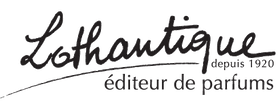What is perfumery? What is the history of perfume? We are diving into the history, chemistry and French innovations that have shaped our favourites scents into a global industry.
What is perfumery?
Perfumery is the process of making perfumes, which is considered by many to be an art form. The word ‘perfume’ comes from the Latin ‘per’ and ‘fumus,’ which translates to ‘thorough’ and ‘smoke.’ Later, the French would coin ‘parfum’ as the smell produced by burning incense, which is where we find our roots of perfume in history.
What is the history of perfume?
Incense was the first form of perfume in history. It was created by the Mesopotamians around 4000 years ago. We have archeological evidence of a cuneiform tablet that is 3000 years old, which lists a woman, Tapputi, as the first recorded perfume maker. Perfumes were also being used in ancient China, India, Carthage (modern-day Tunisia), Arabia (the Arabian Peninsula), Egypt, Greece, and later Rome.

Many ancient cultures burned resins, woods, and herbs as part of their religious ceremonies. Ancient Egyptians are credited with the invention of glass, and created the first perfume bottles around 1000 B.C.E.. Scented oils also began to be used by citizens outside of religious rituals. Arab and Persian chemists then developed the distillation of fragrances that allowed perfumes to become manufactured and traded more extensively.
How did perfumery develop in France?
Perfumery exploded in France during the 17th century with the ‘Perfumed Court’ of King Louis XIV. Throughout Europe, personal hygiene was not great, and perfumes were used to mask unpleasant odours. At the time, nobility in France believed diseases were spread in the water. So the less you bathed, the safer you were. In fact, Louis XIV was terrified of baths, and it is rumoured he only took a total of three of them in his whole life.
However, Louis knew how to over-compensate. He commissioned his perfumer to create a new scent for every day of the week. His shirts were soaked in ‘Aqua Angeli’ – a mixture of aloes-wood, nutmeg, cloves and benzoin boiled in rosewater. Within the palace of Versailles, bowls of flower petals were plentiful to scent the air (even the furniture was scented).

Other nobles branded themselves by their custom scents like modern day social media influencers. Large sums of money were spent on perfumes, and it could be the main item in the household budget for some. Marie Antionette, Louis’ wife, was a glamorous icon, and competition to supply perfumes to the French royal court was stiff.
Perfumer-gantiers garnered great power and status, receiving patents from Parliament itself. Jean-Louis Fargeon eventually won the queen’s attention. He was a perfumer from Montpellier, one of the major centers for perfumery in the country. The other major hub for perfumery was in Grasse, which is still considered the center of perfumery today.
But the draw of perfume was not exclusive to the royal court. ‘Perfume pedlars’ toured the country with horse drawn carriages selling their perfumes, medicines, and other elixirs to citizens.

Even after the French Revolution, perfumers found a champion in Napoleon Bonaparte. While they had lost many of their affluent customers to the revolution, Napoleon was enamoured with his rosemary eau de cologne and he had a standing order of 50 bottles per month with his perfumer.
What is the perfume industry like now?
Today, perfumery is an intersection of both chemistry and art. If a perfumer-gantier was motivated by ingenuity to gain wealthy clients, today’s perfumers are scientists replicating memories. Very few art forms are so reliant on the scientific method. A modern perfume is a blend of fragrances with common facets, so the overall effect is both pleasant and coherent. But in many ways, a perfume is as much a molecular construct as it is memory.

For a master perfumer, who needs to be able to distinguish between hundreds of essential oils and thousands of synthetic materials, the key to being a great ‘nose’ (or nez) is association. It is easier to remember raw materials when it reminds you of your grandmother or your favourite local bakery. Studies show your brain stores both a scent, and the memory of when you first encountered them. Jean Guichard, former director of the Givaudan Perfumery School in France (an elite and rigorous program founded in 1946), describes the perfect perfumer as “mixture between a scientist and a poet.”
The work of perfumers can truly be found everywhere from fine fragrances to industrial products and marketing ventures. Indeed, the global perfumery industry is a multi-billion-dollar market that continues to grow.
However, no matter the brand or client, you’ll never find a perfumery without a piece of wool nearby (it helps to olfactory fatigue) or on a quest to replicate the (so far) inimitable scent of champagne or new puppies.
What are some of your favourite scents? What was the first perfume you owned? Let us know in the comments below.





